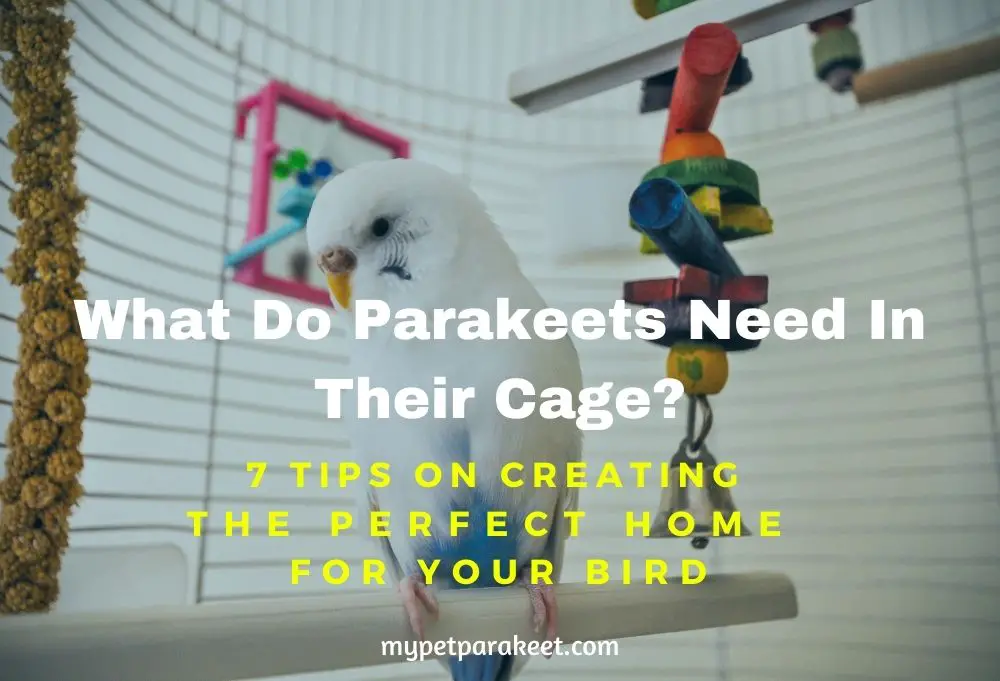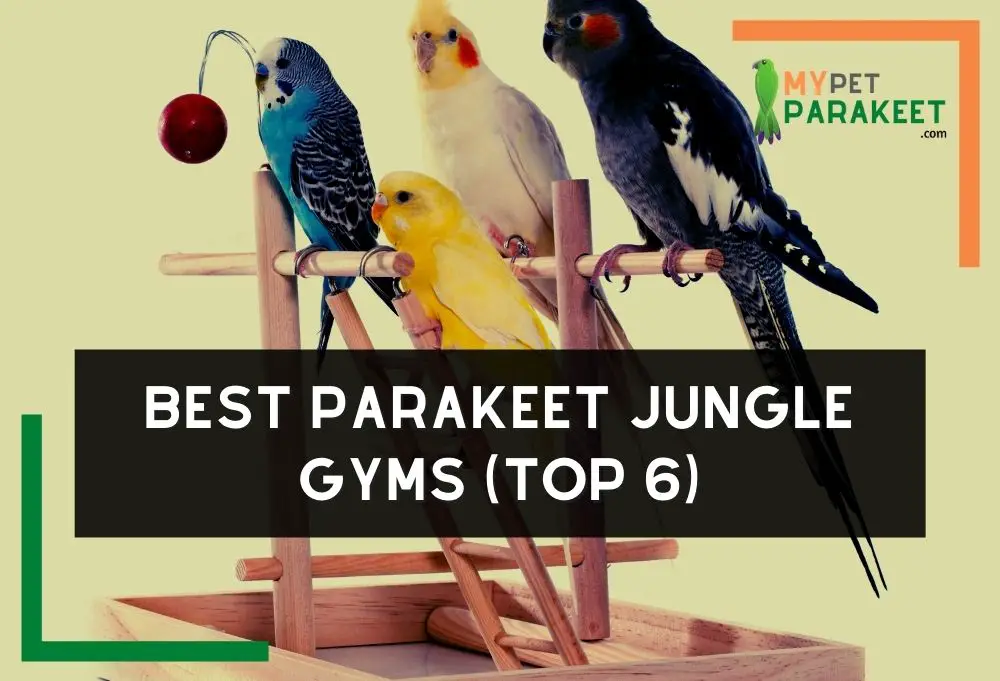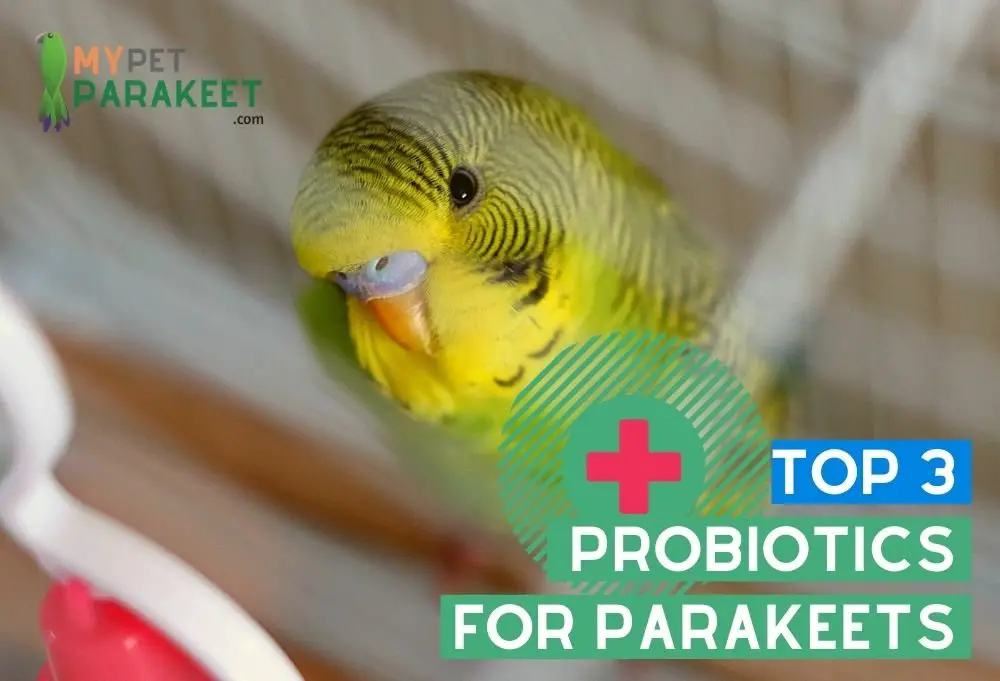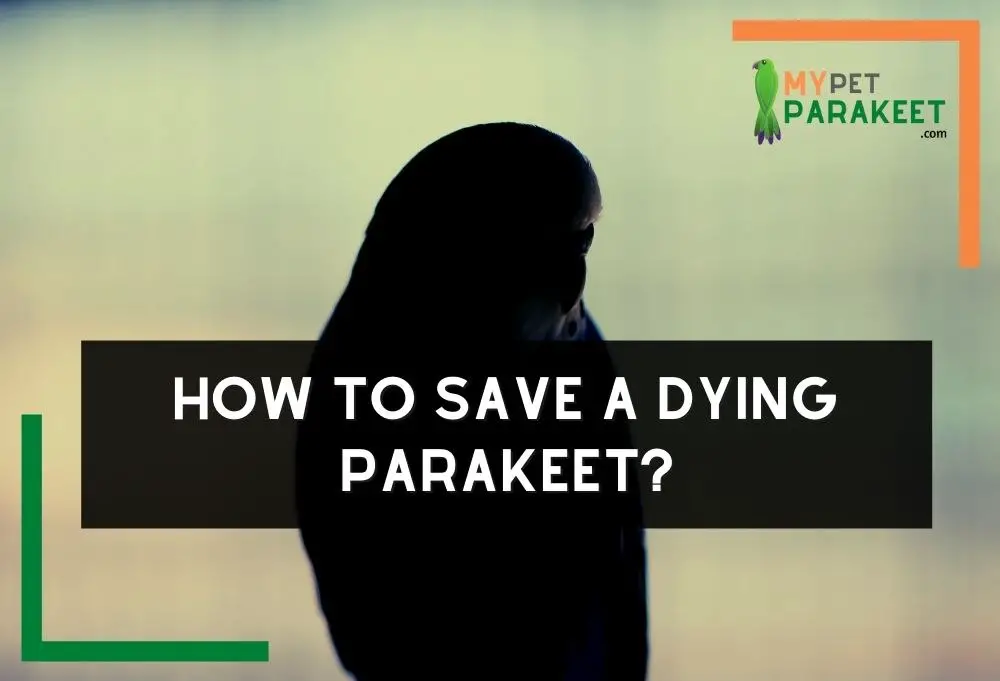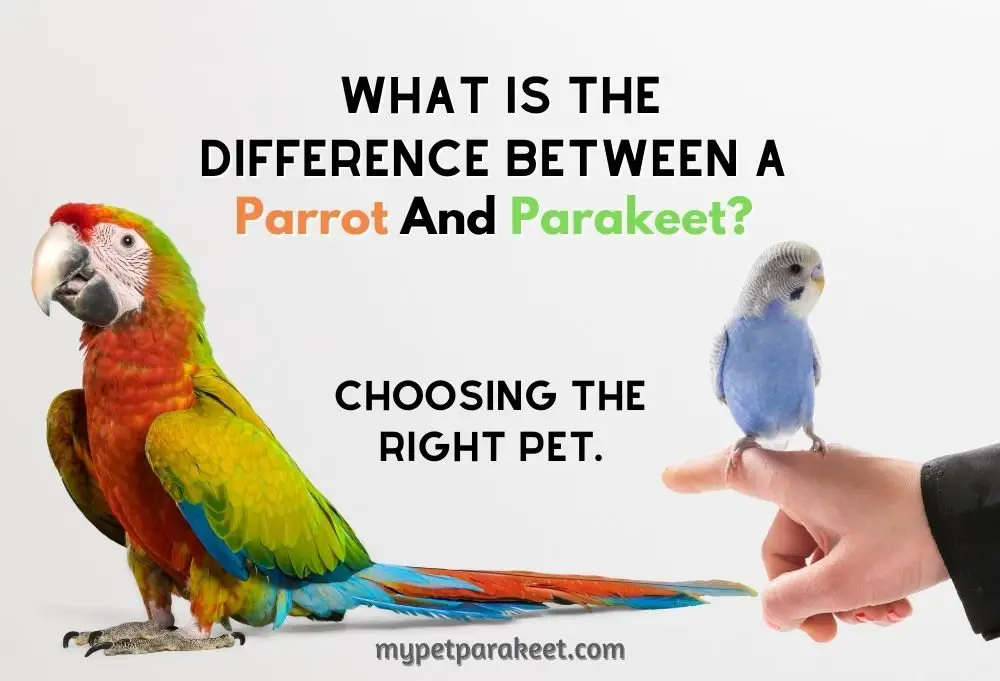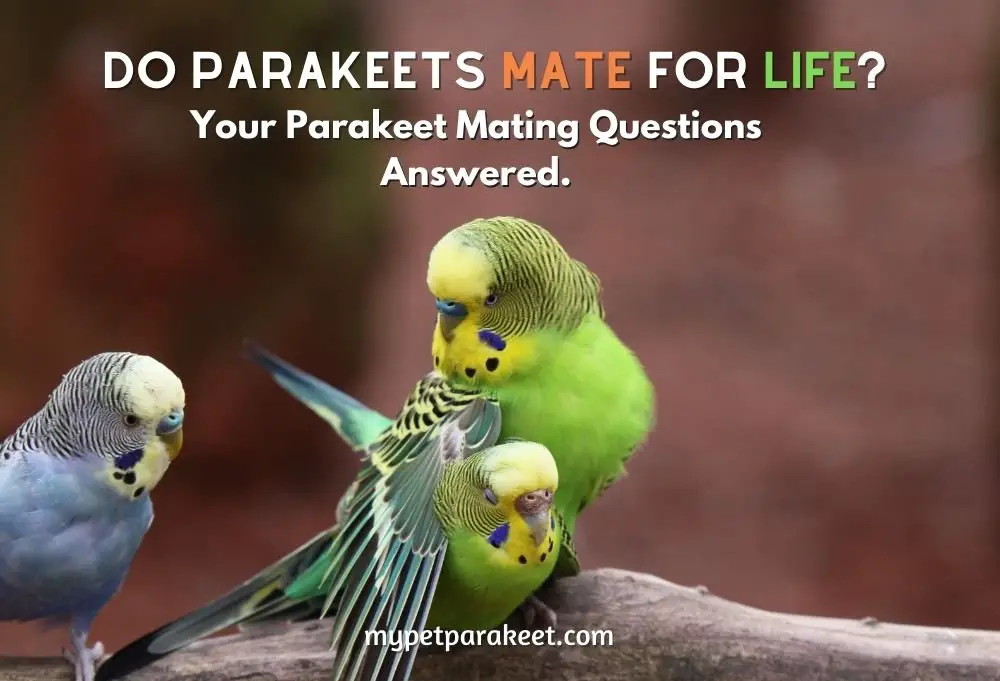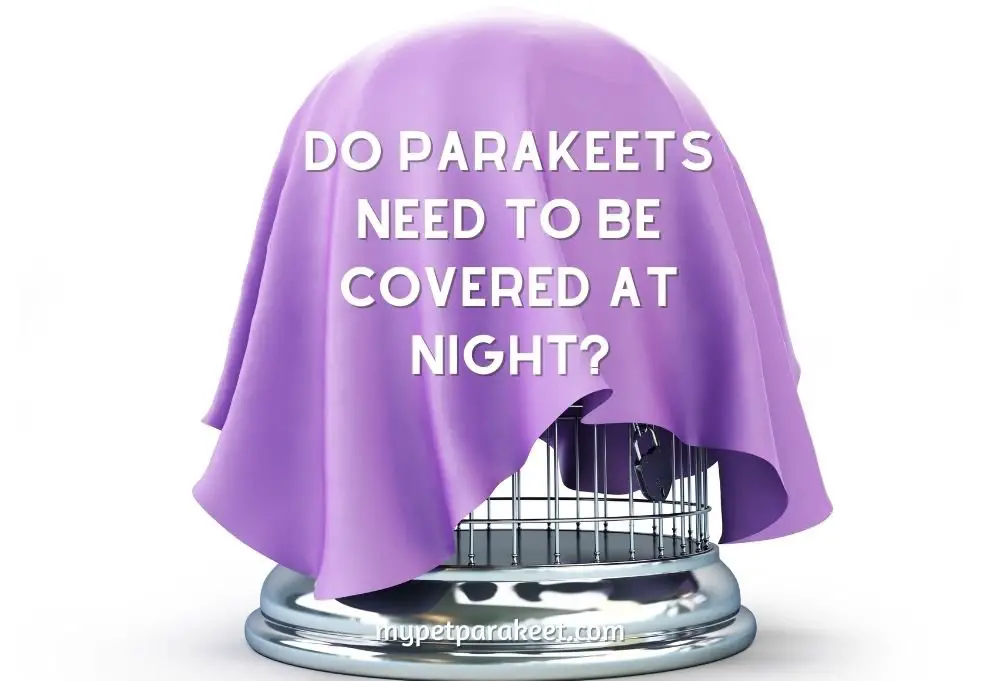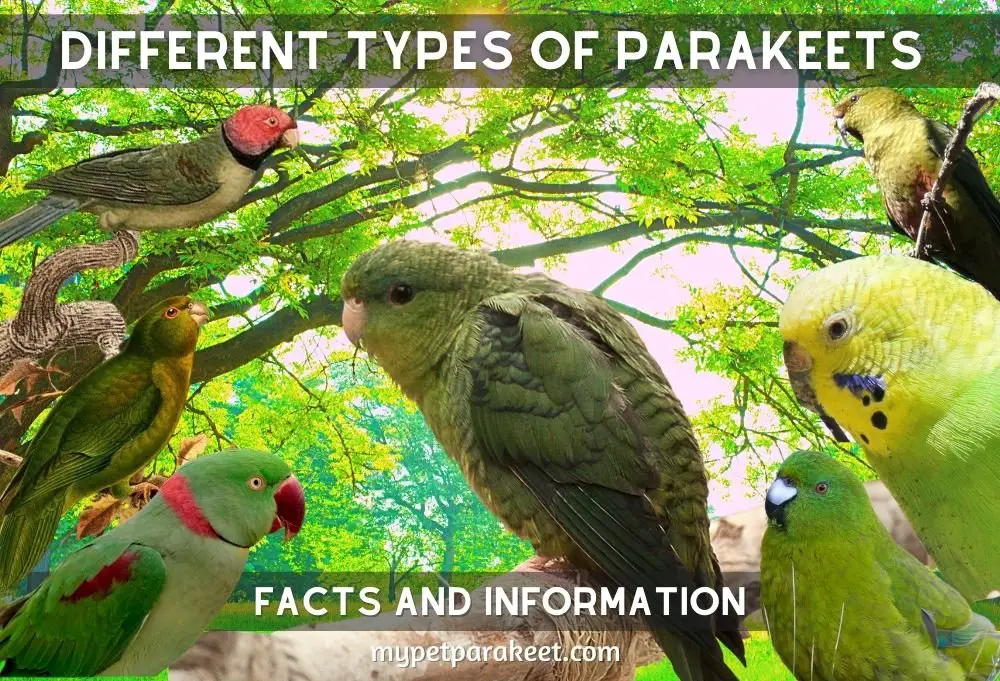Just like all birds, parakeets need to consume adequate food and water to remain alive and healthy. If your parakeet is not eating or drinking, they will become leaner, depressed, and immunocompromised. You must know the factors which force parakeets to stop eating or drinking. You have to remove the element which would be responsible for the illness of parakeets.
What should you do if your parakeet stops eating or drinking?
The first thing you can do is find the reason, as many things could be the cause. First of all, You have to identify the issue. Once you identify and rectify it, if the problem is still not resolved, it is likely that your bird has an infection.
6 Reasons Why Your Parakeet Is Not Eating Or Drinking
Some factors that could be preventing your parakeet from eating or drinking:
1. Sudden change in food
A sudden change in food can cause your bird to stop eating or drinking.
I have found that when birds eat a particular food for several months and then change to a new type of food, they refuse the new food.
Furthermore, sudden changes in food can cause intestinal problems as the parakeet's body has become accustomed to the grains or seed mix you were feeding it. Now, its stomach has to adjust to some greens and fresh fruit and vegetables.
This is not a bad thing; however, your bird's body might just need some help adjusting.
Solution
In this case, I would recommend you add a few drops of bird probiotic to its food or water.
You can learn more about the role probiotics play in your bird's diet here.
Most veterinarians suggest changing food gradually if you have to do it. Offer your bird a small amount of new food along with regular food by mixing them together. Over time you can adjust the ratio of new food to old food and see how your parakeet reacts.
2. Change of owner
Parakeets are pet birds that form an emotional bonding with their owner. If you have adopted or purchased a parakeet that has not yet bonded with you when you, it could be grieving or still be nervous around you.
What it is familiar with has gone away; this can be very scary for a small prey bird such as a parakeet.
Solution
As parakeets are food lovers, a good way to earn its trust is by offering its favorite food or treat like fruits or grains, whatever they like to eat. It might not be instantaneous, but they will eventually forget all about their old owner.
3. Environmental stress
Similar to the stress of a new owner, the stress of a new environment can also be the reason your parakeet is not eating or drinking.
If you bought a parakeet from the pet store or brought it from any other place to your home, this will put them under the stress of a new place, and it might refuse to eat and drink. Drinking water especially makes parakeets feel vulnerable. Couple that with being in a brand new cage with new noises and faces.
Solution
The stress of being in a new environment is not a cause of worry as it can easily be solved within a few days. The only solution here is time; time is required to adjust to the new environment.
If your new bird does not start to eat within 24-48 hours, you have to consult a veterinarian as it could be more complex than a change in environment.
4. Diet changes from seed to pellet
Diet alteration from seed-based to pellet-based can also be a factor that can stop intake. Pellet contains many other nutrients which may be unacceptable to parakeets at sudden.
This problem mostly occurs when you bring your bird from an environment where it is using raw seed as a food material.
Solution
If your parakeet is not eating pellet-based food, then try to offer them seed-based food. This often solves this issue.
If the problem is not solved by changing the food, take your bird to the veterinarian for proper diagnosis.
5. Your Parakeet Has Intestinal parasites
Many parasites harbor the intestine of birds like Giardia or any type of intestinal worm. These parasites can block the way of feed in the intestine or may irritate the intestinal tract.
You can also found worms in the dropping of birds, or may they acquire diarrhea as well.
Solution
Take your birds to the veterinarian as they can be a serious issue to your bird's health soon.
The veterinarian will diagnose the type of parasite and give antiparasite drugs accordingly.
6. Your Parakeet Has An Infection
If you have monitored your parakeet and found that none of the above have been the cause then it is likely your parakeet has an infection. There may be a bacterial or viral infection in your bird. In which case, the veterinarian will diagnose the disease and suggest the most appropriate treatment for your bird accordingly.
You will need to follow the instructions from the vet meticulously, as infections can be life-threatening.
Conclusion
If your parakeets are not eating for less than two days, it is of no worries as they can start to eat and drink after little changes in food as offering them their favorite food or some flavored food.
But if they are not eating for more than two days, you should go for a checkup from a veterinarian as there may be any infection to your birds.


